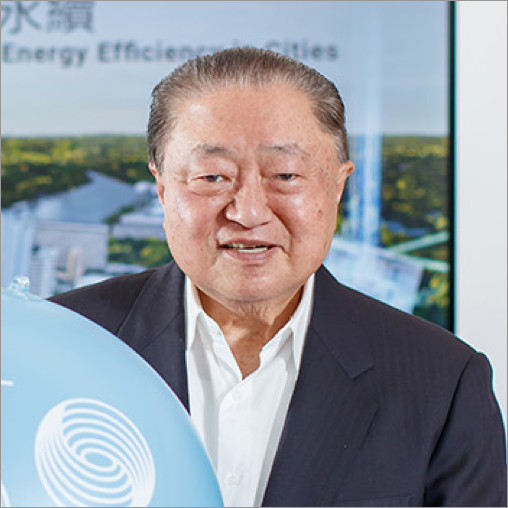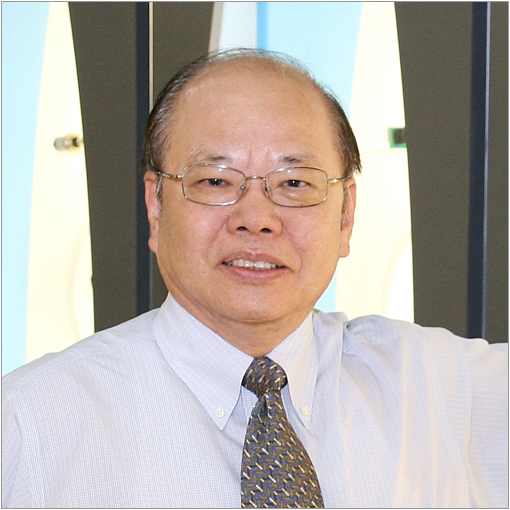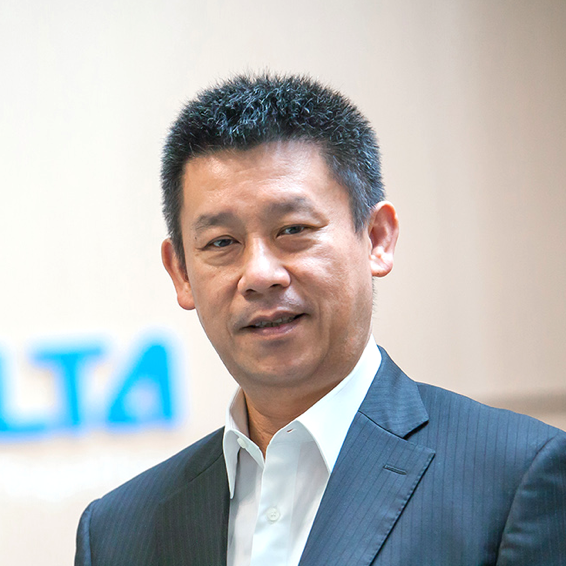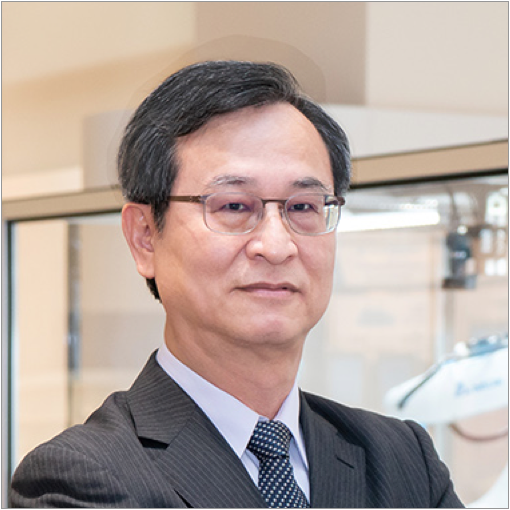In the early days, Delta started with TV components and took a two-pronged approach by focusing on domestic sales and exports, and the quality of our products was recognized by our clients. As Taiwan's economy and industry were developing rapidly and electricity consumption increased year by year, power was running short, and at times we even had rolling blackouts. I could see that an effective solution would be to switch to a more energy-efficient switching power supply. I then decided to invest in the development of a lighter, thinner, shorter, and more energy-efficient switching power supply and set our business mission as: "To provide innovative, clean and energy-efficient solutions for a better tomorrow". Delta's switching power supply products were officially supplied to clients in 1983. By 2000, the efficiency of all Delta power supply products exceeded 90%. As Delta's products occupy a high market share, improving efficiency makes a substantial contribution to global energy conservation and carbon reduction. Between 2010 and 2020, Delta's power supply products were estimated to have saved clients 33.5 billion kWh of electricity, which was equivalent to reducing 17.80 million metric tons of carbon emissions.
In recent years, Delta has also begun to develop total solutions and diversify our products. This includes the development of electric vehicles, which has received great attention from the public in recent days. The global trend is to replace traditional gas-power vehicles with electric ones, and the motor is the key to the power system. Delta’s motor technology began from industrial automation products, and we have developed electric vehicle power systems for more than a decade. We have fully leveraged our capabilities in core electronic technologies to integrate critical components, such as motors, drives, and DC converters into the limited space of the automotive body. We have thus successfully stepped into the electric vehicle power system supply chains of the European, the U.S., and Japanese first-tier automobile manufacturers.
Industrial development in recent years has resulted in resource depletion and pollution of the natural environment, and has begun to endanger the survival of human beings and other creatures. Global warming has made a major impact on the environment. I can still remember that the Taipei Weather Station registered a high temperature of 39.7°C in the summer of 2020, a record high in the 124 years since the station was established. The ecological impacts caused by the abnormal climate also continue to be witnessed all over the world. All the predictions made by scientists about warming in the past seem to be coming true one after another. Thus, we must take immediate action to prevent more climate disasters from happening.
There is potential for reducing carbon emissions from buildings by 50%-75%. Delta’s Tainan Plant was the first building in Taiwan rated with a "Gold" Green Building label as it was completed and launched in 2006. We continued to make improvements after it was launched, and its rating was thus upgraded to " Diamond" in 2009. Since then, Delta has built 29 green buildings and two green data centers at production sites around the world. We adopted a unique ground source heat pump system for the new Delta Americas headquarters building launched in 2016. The pump system makes the entire building cool and comfortable with a constant temperature of roughly 21°C regulated by circulating a total of 12,000 gallons of water through 147-kilometer-long dense pipelines below ground surface. This system is equipped with energy-efficient converters and solar panels on the rooftop, enabling the Americas headquarters to achieve a high standard of "net zero energy consumption".
When Typhoon Morakot ravaged southern Taiwan in 2009, the Namasia District was the hardest-hit area. At the time, Delta decided to assist with the reconstruction of the Namasia Minquan Elementary School. In alignment with the indigenous peoples' traditional architectural styles and the local natural environment, we built an adjustable ground and roof ventilation system with energy-efficient shading and heat-insulating building materials, as well as a solar power supply system, making it the first school with net zero energy consumption in Taiwan.
We founded the Delta Electronics Foundation in 1990 and have been focusing on talent training for more than 30 years. In addition to the topic of energy conservation at which Delta excels, we have expanded to online courses on energy education, green buildings, and smart manufacturing, and have adopted many approaches to call on the public to pay attention to the biggest threat facing humanity: climate change. The Delta Electronics Foundation has participated in the United Nations climate change conferences for many years since 2007. Through our think tank research, international collaborations, exhibition curations, and film productions, we strive to raise more people's awareness of the urgency of global warming. For example, we sponsored the late director Po-lin Chi to produce Taiwan’s first aerial environmental documentary "Beyond Beauty - Taiwan From Above", and commissioned the Japanese NHK Enterprises team to produce the world’s first 8K environmental documentary "Water with Life" with the aim of directing the public's attention to climate change. In recent years, the foundation has carried out various ecological protection projects proactively, ranging from the conservation of humpback whales to the restoration of coral.
During the process of running a business, I often think of the value of a company’s existence. Although a company needs profit to grow, it is more important to contribute to the country and society using its core competitiveness. On Delta’s 50th anniversary, we are adopting "Influencing 50, Embracing 50" as the Company's vision. Building on our solid 50-year foundation, I hope we shall continue to develop innovative products and services, as we join hands with our partners in all sectors and stride towards the next 50 years together.













































